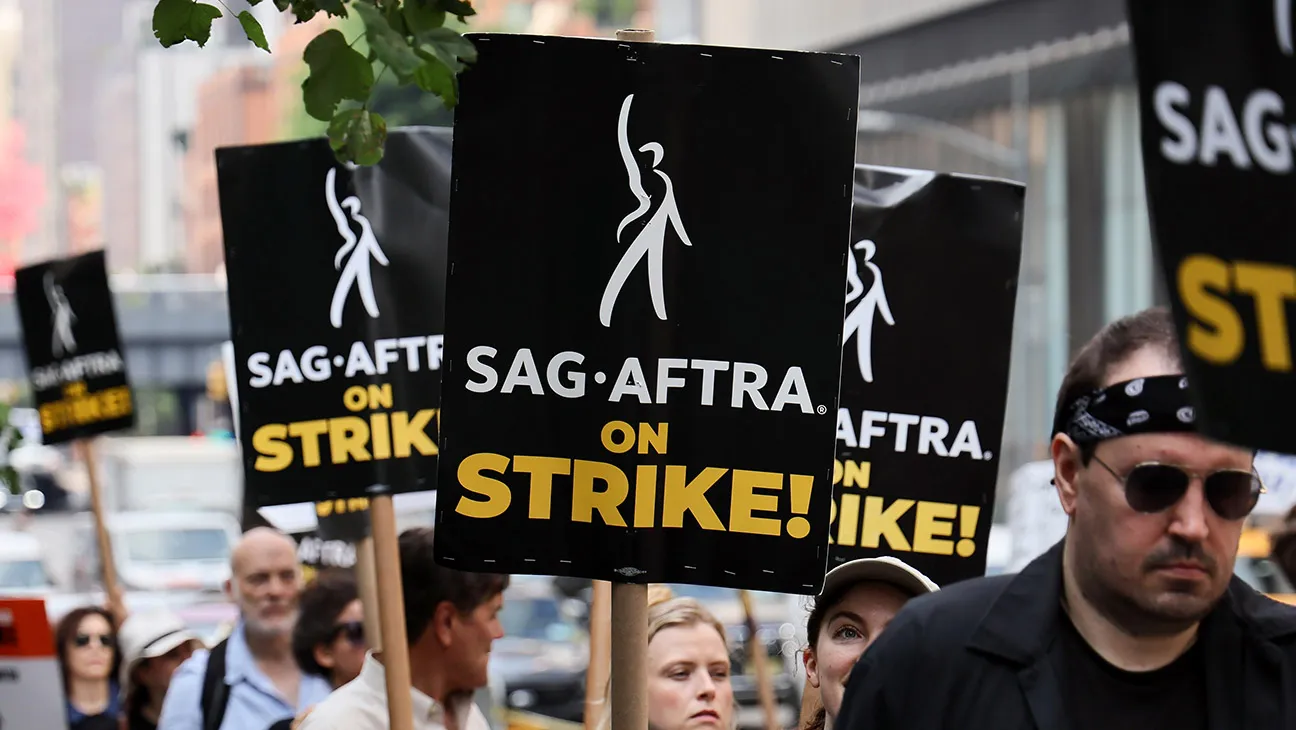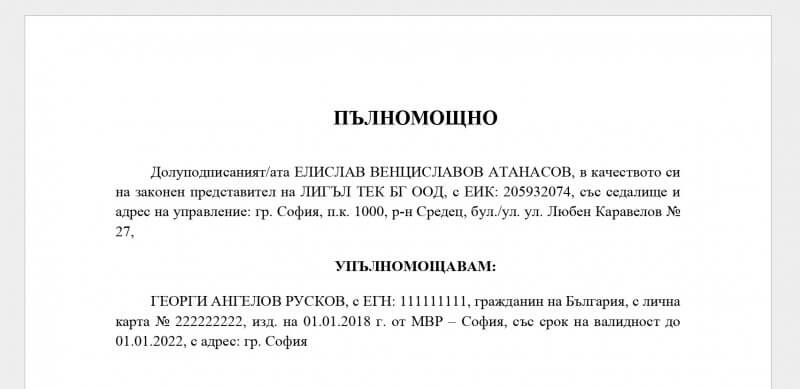WGA And SAG-AFTRA Strike: Unprecedented Hollywood Shutdown

Table of Contents
Key Demands of the WGA and SAG-AFTRA Strike
The WGA and SAG-AFTRA strike isn't just about money; it's about fair treatment, job security, and the future of creative work in the digital age. Both unions have presented a united front, demanding significant changes to address several core issues.
Fair Wages and Residuals in the Streaming Era
The shift from traditional media to streaming has dramatically altered the landscape for writers and actors. While streaming services boast billions in revenue, the compensation models for creatives haven't kept pace. The traditional system of residuals—payments received each time a show or film is rerun or syndicated—has been significantly diminished by the streaming model. This has led to a drastic reduction in income for many writers and actors, particularly those working on successful streaming series.
- Lack of transparency in streaming revenue: Studios often refuse to share detailed financial data with the unions, making it difficult to negotiate fair compensation based on actual profitability.
- Unfair profit-sharing models: Current models often don't fairly reflect the contribution of writers and actors to the overall success of a streaming show.
- Declining residuals for reruns and syndication: The streaming model largely eliminates traditional rerun and syndication revenue streams, significantly impacting long-term earnings for writers and actors.
For example, a writer who contributes to a massively successful Netflix series might receive a relatively small upfront payment, with little to no additional compensation for the show's continued popularity and global reach. This contrasts sharply with the more lucrative residual payments they would have received under the traditional broadcast model.
Protecting Writers and Actors from AI
The rapid advancement of artificial intelligence (AI) presents a significant threat to writers and actors. The unions are deeply concerned about the potential for AI-generated scripts and performances to replace human creatives, leading to job losses and a devaluation of creative skills. The WGA and SAG-AFTRA strike demands include regulations to ensure human creatives are not displaced by AI.
- AI-generated scripts replacing human writers: AI tools can generate scripts, potentially reducing the need for human writers, especially for low-budget productions.
- AI-powered deepfakes replacing actors: Deepfake technology could allow studios to use AI-generated likenesses of actors without their consent or compensation.
- Ethical considerations of AI in creative work: The unions are raising ethical concerns about the use of AI to replicate and exploit the creative work of human artists without proper attribution or compensation.
The unions advocate for clear guidelines on the ethical and responsible use of AI in the entertainment industry, emphasizing the irreplaceable value of human creativity.
Improving Working Conditions
The WGA and SAG-AFTRA strike also addresses crucial issues related to working conditions. Long hours, inadequate staffing, and unsafe working environments are common problems in the industry, negatively affecting the well-being and creative output of writers and actors.
- Long working hours without adequate breaks: Many writers and actors work excessively long hours without sufficient rest, impacting their health and creative potential.
- Inadequate crew sizes leading to unsafe conditions: Understaffing can create hazardous conditions on set, compromising the safety of everyone involved.
- Harassment and discrimination: The unions are pushing for stronger measures to combat harassment and discrimination in the workplace.
These demands aim to create a more fair and sustainable work environment for writers and actors, ensuring they can deliver their best work without sacrificing their physical and mental well-being.
Impact of the WGA and SAG-AFTRA Strike on the Entertainment Industry
The WGA and SAG-AFTRA strike is having a profound and far-reaching impact on the entertainment industry, extending beyond Hollywood itself.
Production Delays and Cancellations
The strike has caused widespread production delays and cancellations across film and television. Major studio projects, independent films, and television series have all been affected, resulting in significant financial losses for studios and production companies.
- Major film releases postponed: Numerous high-profile movie releases have been postponed due to the inability to complete post-production work or marketing campaigns.
- TV show productions halted: Production on many television shows has been indefinitely suspended, impacting release schedules and potentially causing delays in future seasons.
- Loss of revenue for studios and production companies: The halt in production is leading to significant financial losses, impacting the bottom lines of studios and production companies of all sizes.
Economic Fallout Beyond Hollywood
The ripple effects of the strike extend far beyond Hollywood, impacting related industries and local economies heavily reliant on film and television production.
- Job losses in supporting industries: Businesses providing catering, transportation, and other services to film and television productions are experiencing job losses and financial strain.
- Decreased tourism revenue: Locations that depend on film tourism are seeing a decline in visitors and revenue.
- Negative impact on local economies: Communities heavily dependent on the film industry are facing economic hardship as a result of the strike.
The Impact on Streaming Services
Streaming services are also feeling the impact of the WGA and SAG-AFTRA strike. The lack of new content is affecting subscriber retention, and the delay in production is impacting their ability to release new shows and movies.
- Delayed release of new shows and movies: Streaming platforms are facing delays in releasing anticipated shows and movies, potentially impacting their programming schedules and audience engagement.
- Potential subscriber churn: Viewers may cancel subscriptions if there is a lack of new content to watch.
- Reduced profits for streaming platforms: The strike is likely to result in reduced profits for streaming platforms in the short term.
Potential Outcomes and Negotiations
Negotiations between the unions and the AMPTP (Alliance of Motion Picture and Television Producers) are ongoing. Potential outcomes range from a swift resolution to a prolonged standoff. Both sides will likely need to make concessions to reach an agreement.
- Potential concessions from both parties: Both the unions and the AMPTP will likely need to compromise on certain demands to reach a settlement.
- Possible mediation efforts: A neutral third party might be brought in to facilitate negotiations and help bridge the gap between the two sides.
- Scenarios for a quick resolution vs. a prolonged strike: The length of the strike will depend on the willingness of both sides to negotiate in good faith and reach a mutually acceptable agreement.
Conclusion
The WGA and SAG-AFTRA strike represents a pivotal moment in Hollywood history, highlighting the urgent need for fair compensation, improved working conditions, and protection against the transformative effects of AI in the entertainment industry. The outcome of this unprecedented shutdown will significantly shape the future of filmmaking and television. Staying informed about the ongoing WGA and SAG-AFTRA strike and its developments is crucial for everyone interested in the future of the entertainment industry. Understanding the key demands and the far-reaching implications of this strike will help us navigate the evolving landscape of Hollywood. Keep checking back for updates on the WGA and SAG-AFTRA strike and its potential resolutions.

Featured Posts
-
 Amundi Dow Jones Industrial Average Ucits Etf Monitoring And Utilizing Nav Data
May 24, 2025
Amundi Dow Jones Industrial Average Ucits Etf Monitoring And Utilizing Nav Data
May 24, 2025 -
 Nimi Muistiin Ferrarin 13 Vuotias Lupaus
May 24, 2025
Nimi Muistiin Ferrarin 13 Vuotias Lupaus
May 24, 2025 -
 Konchita Vurst Kak Se Promeni Sled Pobedata Na Evroviziya
May 24, 2025
Konchita Vurst Kak Se Promeni Sled Pobedata Na Evroviziya
May 24, 2025 -
 Person Rushed To Hospital Following Serious Road Crash
May 24, 2025
Person Rushed To Hospital Following Serious Road Crash
May 24, 2025 -
 Jonathan Groffs Just In Time A Night Of Support From Famous Friends
May 24, 2025
Jonathan Groffs Just In Time A Night Of Support From Famous Friends
May 24, 2025
Latest Posts
-
 Tracking The Net Asset Value Of The Amundi Dow Jones Industrial Average Ucits Etf
May 25, 2025
Tracking The Net Asset Value Of The Amundi Dow Jones Industrial Average Ucits Etf
May 25, 2025 -
 Amundi Djia Ucits Etf Nav Calculation And Implications
May 25, 2025
Amundi Djia Ucits Etf Nav Calculation And Implications
May 25, 2025 -
 Amundi Dow Jones Industrial Average Ucits Etf A Nav Deep Dive
May 25, 2025
Amundi Dow Jones Industrial Average Ucits Etf A Nav Deep Dive
May 25, 2025 -
 Waiting For The Call A Personal Narrative
May 25, 2025
Waiting For The Call A Personal Narrative
May 25, 2025 -
 The Agony Of Waiting By The Phone
May 25, 2025
The Agony Of Waiting By The Phone
May 25, 2025
